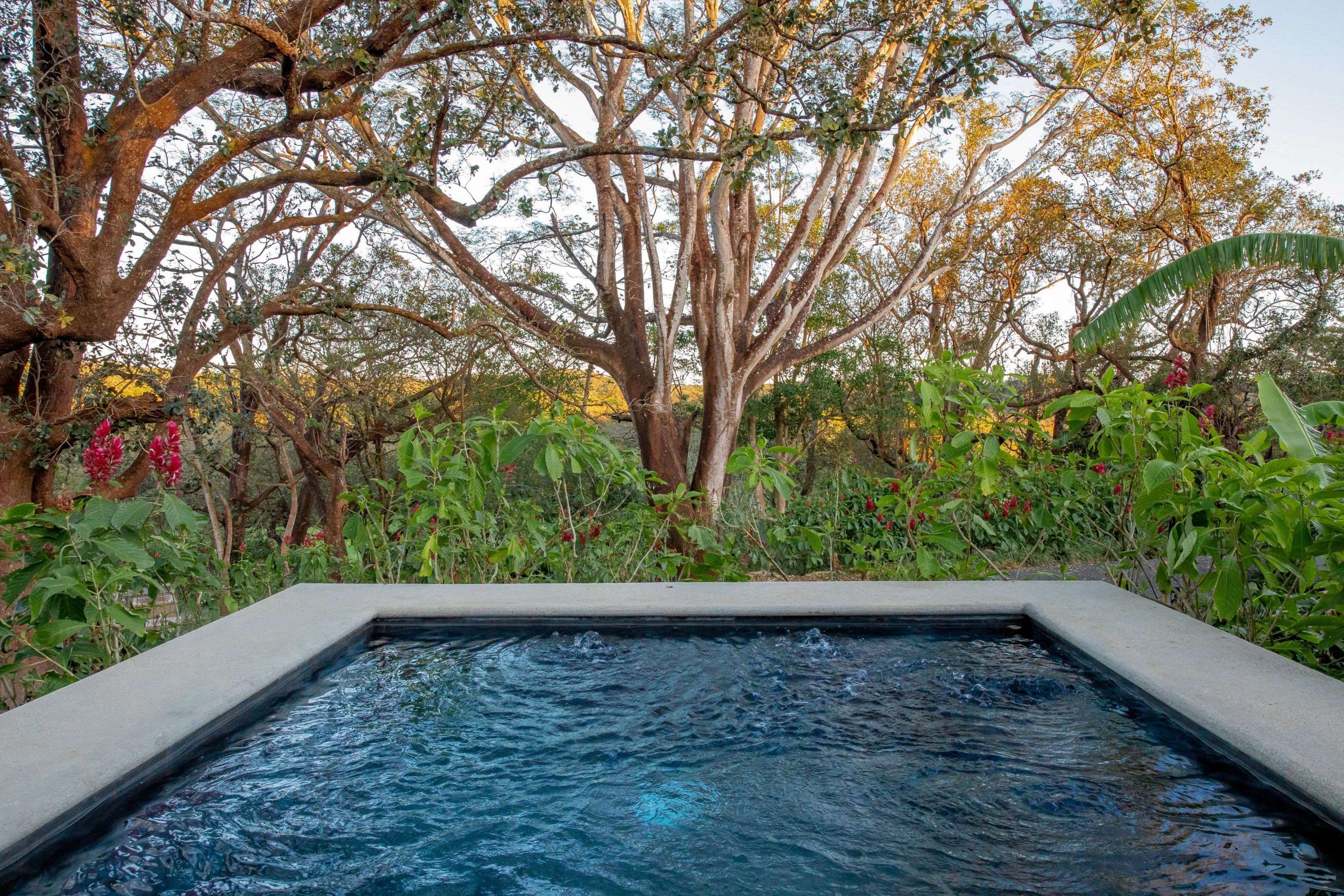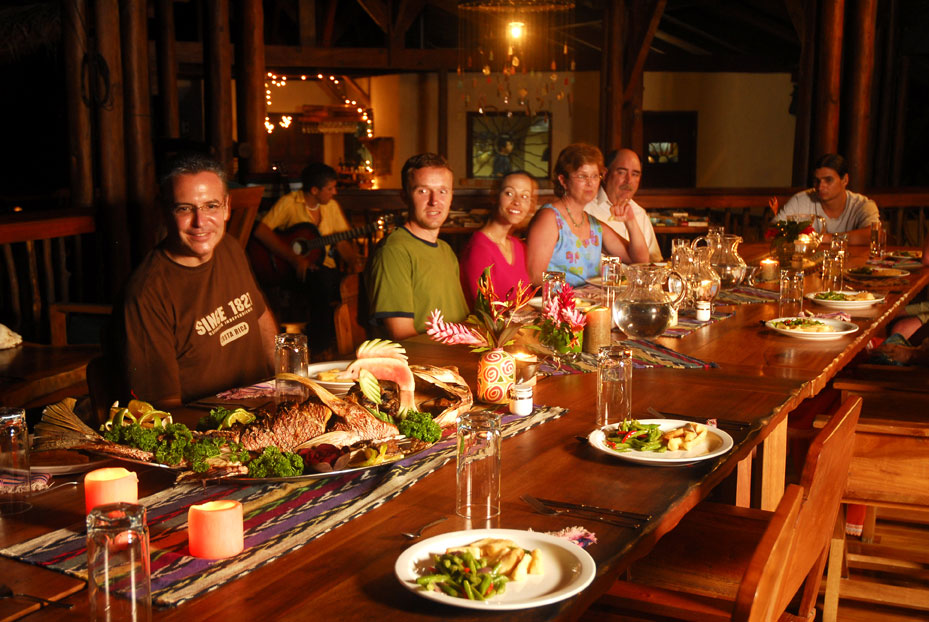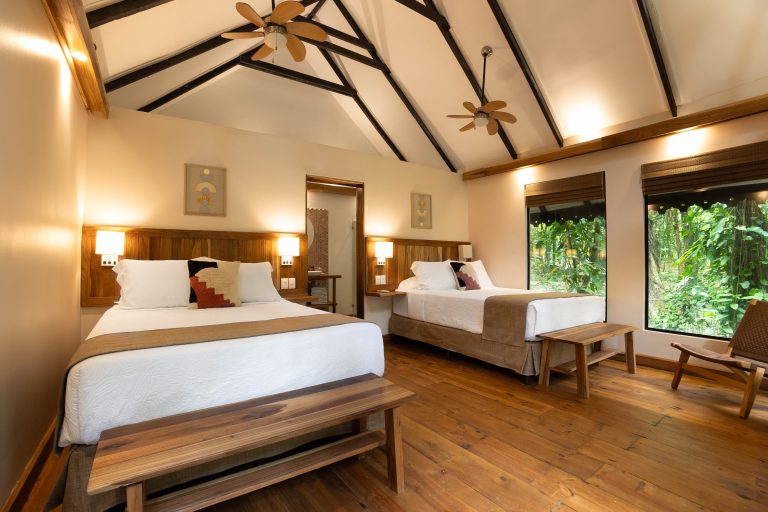Veragua Rainforest Eco-Adventure Park in Costa Rica shares in the Earth Day 2017 commitment to environmental education every day of the year.
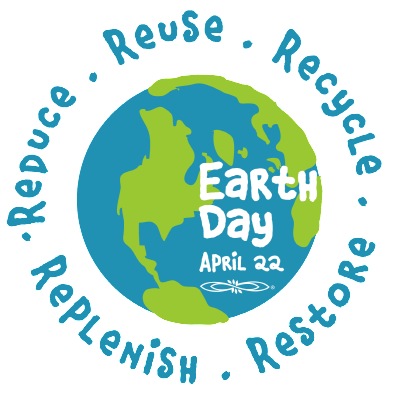 Earth Day 2017 focuses on educating the world about environmental protection in its campaign for Environmental and Climate Literacy.
Earth Day 2017 focuses on educating the world about environmental protection in its campaign for Environmental and Climate Literacy.
“Education is the foundation for progress. We need to build a global citizenry, which is fluent in the concepts of climate change, and aware of its unprecedented threat to our planet. We need to empower everyone with knowledge to act in defense of environmental protection,” states the Earth Day Network. “This is more than a campaign issue and more than a U.S. issue, this is a global issue. Education is the key to advocacy and advocacy is the key to change.”
In Costa Rica, Veragua Rainforest Eco-Adventure Park is dedicated to environmental education on Earth Day and every day.
For eight years, Veragua Rainforest and the Veragua Foundation for Education & Rainforest Research have actively promoted environmental awareness in their local communities of Brisas de Veragua de Limon and Union of the Peje River, in the mountains of Costa Rica’s Caribbean Coast near the port of Limon.
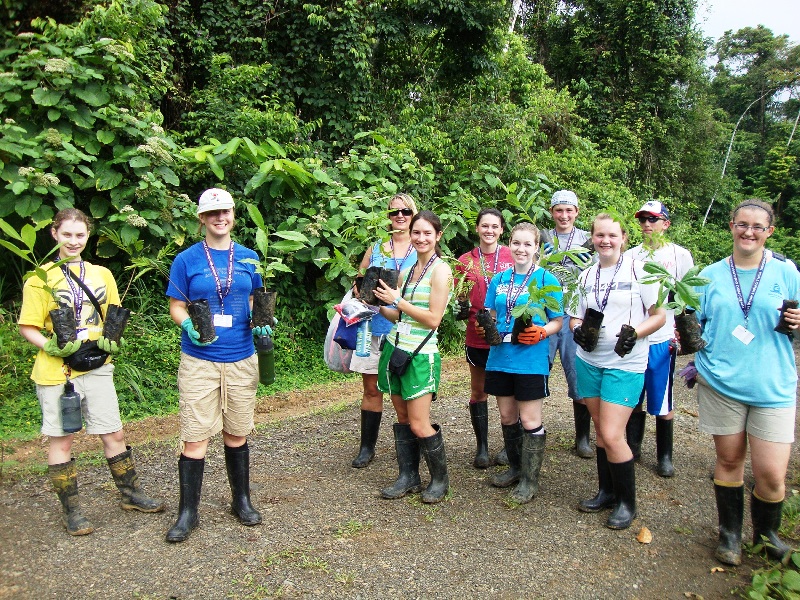
Trees have been planted where deforestation occurred for farming and ranching. Hunting of protected native wildlife has reduced substantially and animals have returned to the surrounding forest. Educational programs at local schools led by Veragua biologists and guides are teaching kids to take care of the world around them. School groups come to Veragua Rainforest Eco-Adventure a few times a year to learn about rainforest plants, trees, and animal life.
International educational programs bring together student groups from the United States, through Veragua Rainforest and Eco-Teach, with the schoolchildren by Veragua to work on community projects and plant trees. In February, the Veragua Foundation and Ecoteach Foundation and Ecoteach Travel in the U.S. organized a donation of much-needed school supplies for the elementary school students in Brisas and Peje River beginning the new 2017 Costa Rica school year.
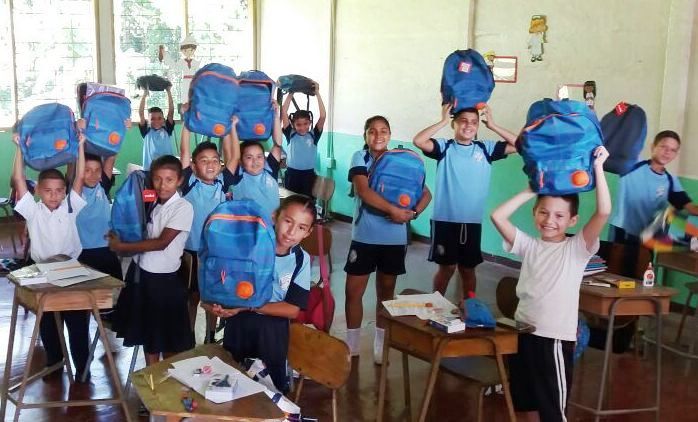
How did Earth Day start?
The first Earth Day on April 22, 1970 is widely credited with launching the modern environmental movement around the world.
“The idea for a national day to focus on the environment came to Earth Day founder Gaylord Nelson, then a U.S. Senator from Wisconsin, after witnessing the ravages of the 1969 massive oil spill in Santa Barbara, California. Inspired by the student anti-war movement, he realized that if he could infuse that energy with an emerging public consciousness about air and water pollution, it would force environmental protection onto the national political agenda,” according to the Earth Day Network.
More than 20 million people in the USA joined in that first Earth Day. By the end of 1970, the United States Environmental Protection Agency was created. Soon afterward, groundbreaking environmental laws such as the Clean Air Act, Clean Water Act and Endangered Species Act in the USA were established.
Observed annually on April 22, now over 1 billion people in more than 193 countries participate in Earth Day activities each year to promote environmental awareness and call for the protection of the planet, making it the largest civic observance in the world. Senator Nelson was awarded the esteemed Presidential Medal of Freedom in 1995 by President Bill Clinton for his role as Earth Day founder.
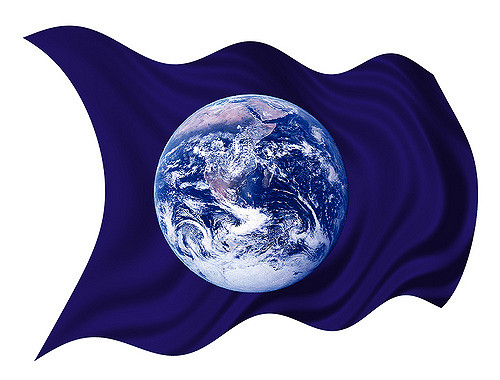
What Can You Do for Earth Day 2017?
- Plant a tree or join in an organized tree planting event in your community.
- Pick up trash in your neighborhood, or a nearby park, recreation trail, etc.
- Recycle. Use re-usable water bottles, bags for shopping, recyclable containers for snacks and lunches, etc.
- Ask for drinks without plastic straws.
- Bring your travel coffee mug with you when you go to your favorite coffee shop.
- Join initiatives that call on world leaders to take action to stop global warming and environmental destruction, protect wildlife, conserve wild areas and national parks, and promote positive environmental programs.
- Contribute to environmental and community programs with the Veragua Foundation for Education & Rainforest Research by either visiting the Veragua Rainforest Eco-Adventure Park in Costa Rica, bring a student group to do hands-on projects, volunteer, or donate funds online at http://www.veraguarainforest.com/foundation/.
Article by Shannon Farley




